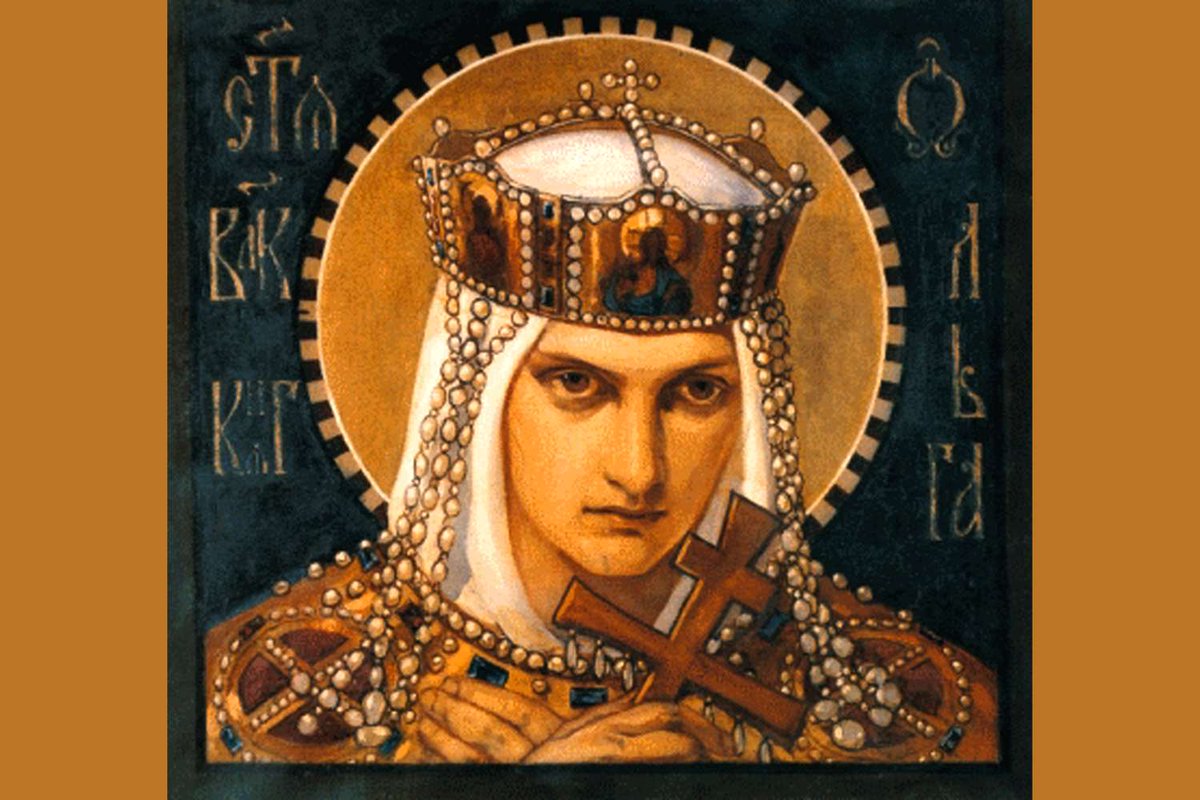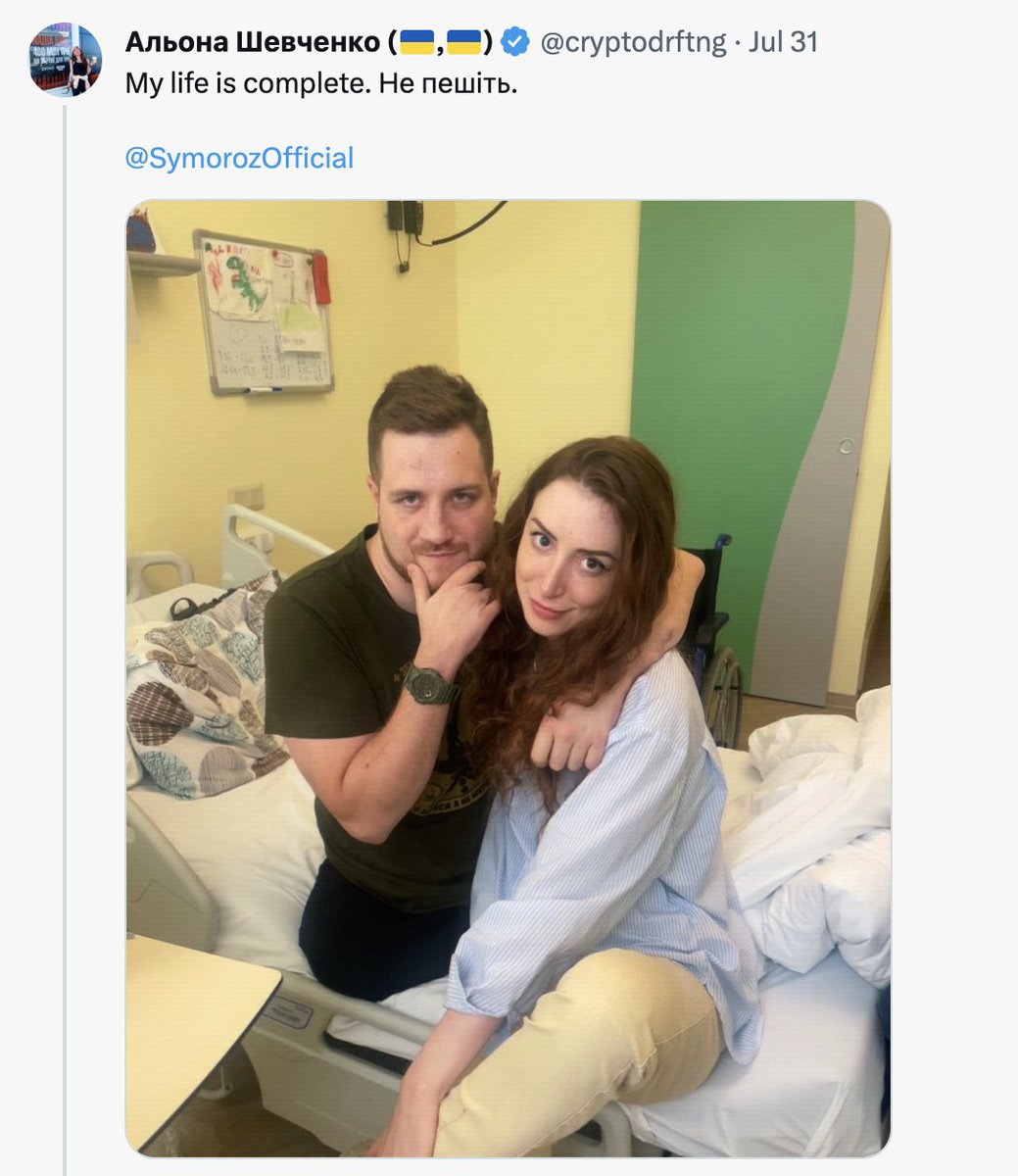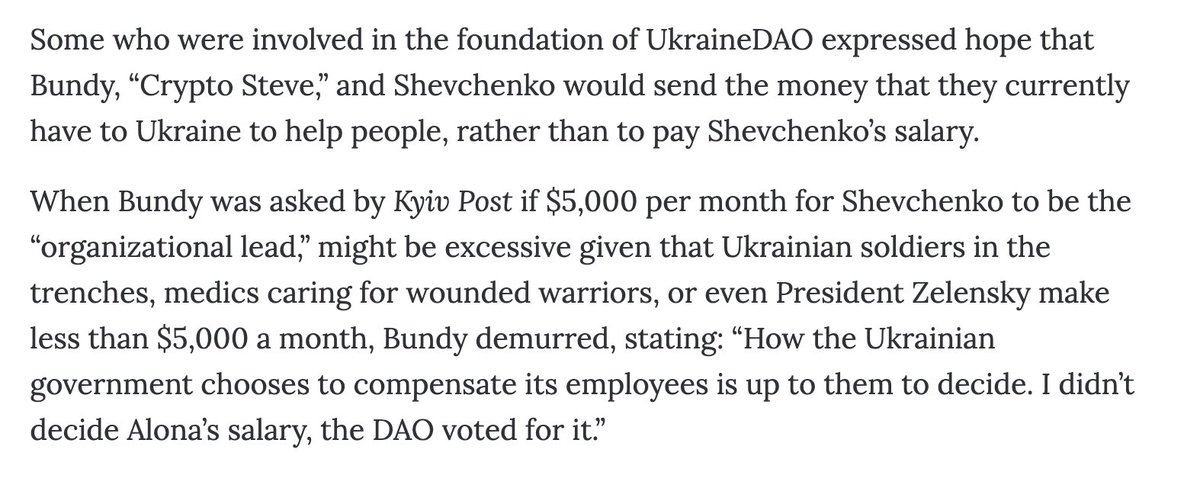Ukrainian literature, as well as the very foundation of modern Ukrainian language has been shaped by the "Ukrainian Bard", Taras Shevchenko, also known as Kobzar
Shevchenko was a polymath, excelling in writing, poetry and paintings. He was equally a prominent political figure, folklorist and ethnographer
He was born in 1814 in Kyiv Governorate, then Russian Empire, in family of serf peasants, owned by a russian landlord Vasily Engelhardt
Taras's forefathers were Cossacks who served in the Zaporozhian Host and had taken part in the Cossack uprisings of the 17th and 18th centuries, brutally destroyed by Russian Empress Catherine
Taras childhood in russian slavery has influenced his works and political career, championing Ukrainian independence

Shevchenko was a polymath, excelling in writing, poetry and paintings. He was equally a prominent political figure, folklorist and ethnographer
He was born in 1814 in Kyiv Governorate, then Russian Empire, in family of serf peasants, owned by a russian landlord Vasily Engelhardt
Taras's forefathers were Cossacks who served in the Zaporozhian Host and had taken part in the Cossack uprisings of the 17th and 18th centuries, brutally destroyed by Russian Empress Catherine
Taras childhood in russian slavery has influenced his works and political career, championing Ukrainian independence
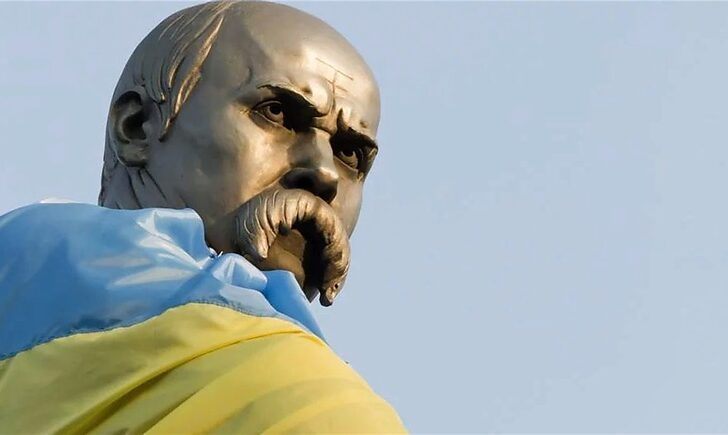
Taras Shevchenko is widely studied in Ukrainian establishments
Worth noting, however, that Shevchenko has equally strongly influenced Russian literature and art circles
In fact, it was Shevchenko's painting materpiece, portrait of Russian poet Vasily Zhukovsky, that financed Shevchenko's freedom on 5 May 1838
Shevchenko was an honorary member of St Petersburg Imperial Academy of Arts
He was revered among fellow artists and political fighters across Russian Empire, while feared by the Russian Tsar, Nicholas I, who ordered Shevchenko's arrest and exile after reading Shevchenko's poems about himself
Tsar Nicholas I, personally confirmed his sentence, added to it, "Under the strictest surveillance, without the right to write or paint."
Shevchenko's funeral in Saint Petersburg was attended by fellow artists Dostoevsky, Turgenev, Saltykov-Shchedrin and Leskov

Worth noting, however, that Shevchenko has equally strongly influenced Russian literature and art circles
In fact, it was Shevchenko's painting materpiece, portrait of Russian poet Vasily Zhukovsky, that financed Shevchenko's freedom on 5 May 1838
Shevchenko was an honorary member of St Petersburg Imperial Academy of Arts
He was revered among fellow artists and political fighters across Russian Empire, while feared by the Russian Tsar, Nicholas I, who ordered Shevchenko's arrest and exile after reading Shevchenko's poems about himself
Tsar Nicholas I, personally confirmed his sentence, added to it, "Under the strictest surveillance, without the right to write or paint."
Shevchenko's funeral in Saint Petersburg was attended by fellow artists Dostoevsky, Turgenev, Saltykov-Shchedrin and Leskov

Shevchenko died in St Petersburg on 10 March 1861, the day after his 47th birthday, and seven days before the 1861 emancipation of serfs, which he has been fighting for throughout his life
Shevchenko is considered to be "the founder of the revolutionary democratic trend in the history of Ukrainian social thought"
A serf peasant, ransomed from captivity, Shevchenko was in the words of Russian critic Nikolai Dobrolyubov, "a poet of the people ... He came out of the people, lived with the people, and not only by thought, but by the circumstances of life, was closely and bloodily connected with the people"
His battle poetry, which spread underground, was a sharp weapon in the fight against serfdom. Shevchenko had a great influence on the further development of revolutionary social thought in Ukraine and on Ukrainian culture in general (Ivan Franko, Mykhailo Kotsiubynsky, Lesya Ukrainka)
Shevchenko himself was influenced by his predecessor, Ukrainian philosopher, Hryhoriy Skovoroda, who was extremely influential across Russian Empire as well
Shevchenko was part of revolutionary movements in Ukraine and Russia alike, - the Brotherhood of Saints Cyril and Methodius, and the Petrashevsky Circle, together with Fedor Dostoyevsky
Following his testament (below) Shevchenko was re-buried in the Ukrainian land near the Dnipro River and Kaniv:
"When I am dead, bury me
In my beloved Ukraine,
My tomb upon a grave mound high
Amid the spreading plain,
So that the fields, the boundless steppes,
The Dnieper's plunging shore
My eyes could see, my ears could hear
The mighty river roar.
When from Ukraine the Dnieper bears
Into the deep blue sea
The blood of foes ... then will I leave
These hills and fertile fields—
I'll leave them all and fly away
To the abode of God,
And then I'll pray .... But until that day
I know nothing of God.
Oh bury me, then rise ye up
And break your heavy chains
And water with the tyrants' blood
The freedom you have gained.
And in the great new family,
The family of the free,
With softly spoken, kindly word
Remember also me"

Shevchenko is considered to be "the founder of the revolutionary democratic trend in the history of Ukrainian social thought"
A serf peasant, ransomed from captivity, Shevchenko was in the words of Russian critic Nikolai Dobrolyubov, "a poet of the people ... He came out of the people, lived with the people, and not only by thought, but by the circumstances of life, was closely and bloodily connected with the people"
His battle poetry, which spread underground, was a sharp weapon in the fight against serfdom. Shevchenko had a great influence on the further development of revolutionary social thought in Ukraine and on Ukrainian culture in general (Ivan Franko, Mykhailo Kotsiubynsky, Lesya Ukrainka)
Shevchenko himself was influenced by his predecessor, Ukrainian philosopher, Hryhoriy Skovoroda, who was extremely influential across Russian Empire as well
Shevchenko was part of revolutionary movements in Ukraine and Russia alike, - the Brotherhood of Saints Cyril and Methodius, and the Petrashevsky Circle, together with Fedor Dostoyevsky
Following his testament (below) Shevchenko was re-buried in the Ukrainian land near the Dnipro River and Kaniv:
"When I am dead, bury me
In my beloved Ukraine,
My tomb upon a grave mound high
Amid the spreading plain,
So that the fields, the boundless steppes,
The Dnieper's plunging shore
My eyes could see, my ears could hear
The mighty river roar.
When from Ukraine the Dnieper bears
Into the deep blue sea
The blood of foes ... then will I leave
These hills and fertile fields—
I'll leave them all and fly away
To the abode of God,
And then I'll pray .... But until that day
I know nothing of God.
Oh bury me, then rise ye up
And break your heavy chains
And water with the tyrants' blood
The freedom you have gained.
And in the great new family,
The family of the free,
With softly spoken, kindly word
Remember also me"
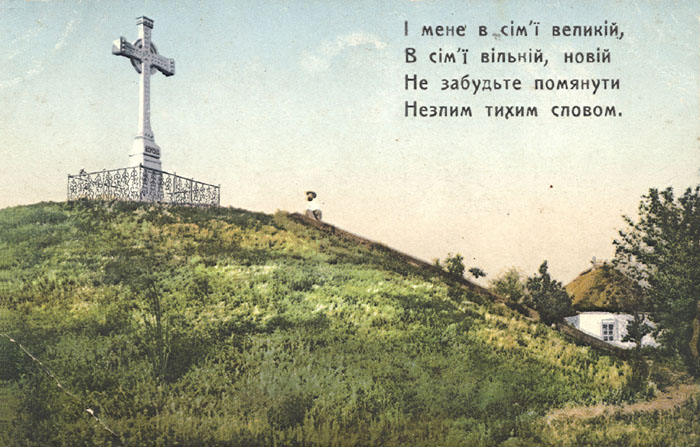
Hryhorii Skovoroda's works are especially relevant today during the discussions on AI Supremacy and the relevance and viability of Universal Basic Income
Hryhorii Skovoroda, born in 1722 into a small-holder Ukrainian Registered Cossack family in the village of Chernukhi, was a prominent philosopher, who lived and worked in the Russian Empire
His significant influence on his contemporaries and succeeding generations and his way of life were universally regarded as Socratic, and he was often called a Ukrainian "Socrates"
Skovoroda's work contributed to the cultural heritage both of modern-day Ukraine and of Russia
He received his education at the Kyiv-Mohyla Academy in Kyiv & was a tutor to the children of many wealthy Ukrainians and Russians
Skovoroda wrote his texts in a mixture of multiple languages: Church Slavic, Ukrainian, and Russian, as well as Latin, Greek, German and Hebrew

Hryhorii Skovoroda, born in 1722 into a small-holder Ukrainian Registered Cossack family in the village of Chernukhi, was a prominent philosopher, who lived and worked in the Russian Empire
His significant influence on his contemporaries and succeeding generations and his way of life were universally regarded as Socratic, and he was often called a Ukrainian "Socrates"
Skovoroda's work contributed to the cultural heritage both of modern-day Ukraine and of Russia
He received his education at the Kyiv-Mohyla Academy in Kyiv & was a tutor to the children of many wealthy Ukrainians and Russians
Skovoroda wrote his texts in a mixture of multiple languages: Church Slavic, Ukrainian, and Russian, as well as Latin, Greek, German and Hebrew
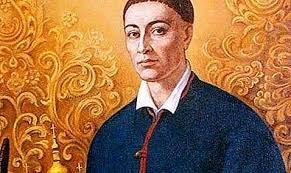
In the final quarter of his life he traveled by foot through Sloboda Ukraine, staying with various friends, both rich and poor, preferring not to remain in one place for too long
Three days before Skovoroda died, he went to the house of one of his closest friends and told him he had come to stay permanently
Every day he left the house with a shovel, and it turned out that he spent three days digging his own grave
On the third day, he ate dinner, stood up and said, "my time has come." He went into the next room, lay down, and died. He requested the following epitaph to be placed on his tombstone:
"The world tried to capture me, but didn't succeed"
Fun fact: my Father was born in the house in Chernukhi, that belonged to Skovoroda's family
Skovoroda himself is not known to have had any descendants, however, so direct connection is unlikely
Skovoroda's main contribution to the philosophic thought is the his belief that a human being needs work for self-actualisation and meaning

Three days before Skovoroda died, he went to the house of one of his closest friends and told him he had come to stay permanently
Every day he left the house with a shovel, and it turned out that he spent three days digging his own grave
On the third day, he ate dinner, stood up and said, "my time has come." He went into the next room, lay down, and died. He requested the following epitaph to be placed on his tombstone:
"The world tried to capture me, but didn't succeed"
Fun fact: my Father was born in the house in Chernukhi, that belonged to Skovoroda's family
Skovoroda himself is not known to have had any descendants, however, so direct connection is unlikely
Skovoroda's main contribution to the philosophic thought is the his belief that a human being needs work for self-actualisation and meaning
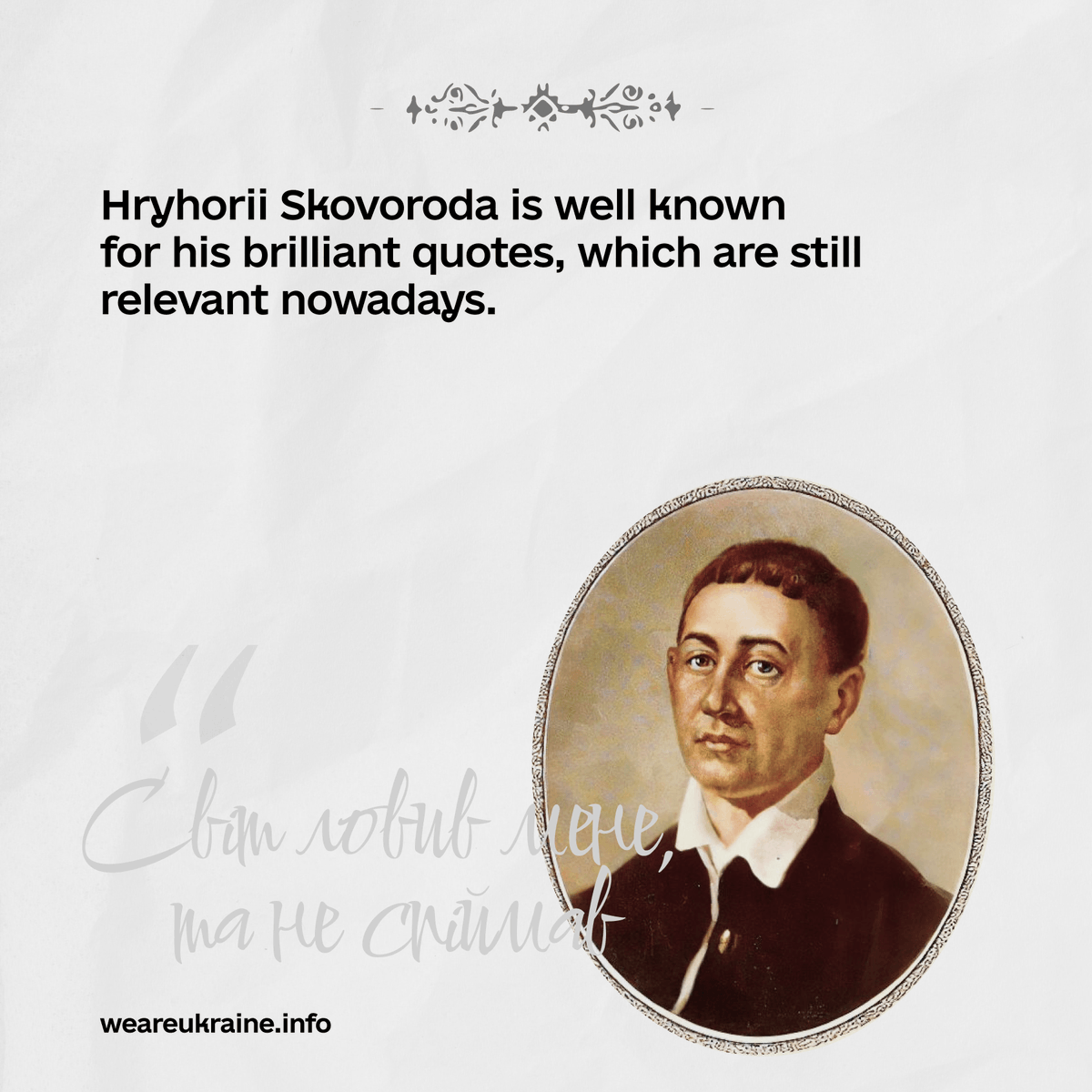
Ivan Yakovych Franko, born in 1856 in Ukrainian village of Nahuievychi, then Austrian kronland of Galicia, was a Ukrainian poet, writer, social and literary critic, journalist, interpreter, economist, political activist, doctor of philosophy, ethnographer, and the author of the first detective novels and modern poetry in the Ukrainian language
Unlike Shevchenko's, Franko's family in Nahuyevychi was considered "well-to-do", with their own servants and 24 hectares (59 acres) of their own property
He was a political radical, and a founder of the socialist and nationalist movement in Western Ukraine
In addition to his own literary work, he also translated the works of such renowned figures as William Shakespeare, Lord Byron, Pedro Calderón de la Barca, Dante Alighieri, Victor Hugo, Adam Mickiewicz, Johann Wolfgang von Goethe and Friedrich Schiller into Ukrainian
Along with Taras Shevchenko, he has had a tremendous impact on modern literary and political thought in Ukraine

Unlike Shevchenko's, Franko's family in Nahuyevychi was considered "well-to-do", with their own servants and 24 hectares (59 acres) of their own property
He was a political radical, and a founder of the socialist and nationalist movement in Western Ukraine
In addition to his own literary work, he also translated the works of such renowned figures as William Shakespeare, Lord Byron, Pedro Calderón de la Barca, Dante Alighieri, Victor Hugo, Adam Mickiewicz, Johann Wolfgang von Goethe and Friedrich Schiller into Ukrainian
Along with Taras Shevchenko, he has had a tremendous impact on modern literary and political thought in Ukraine
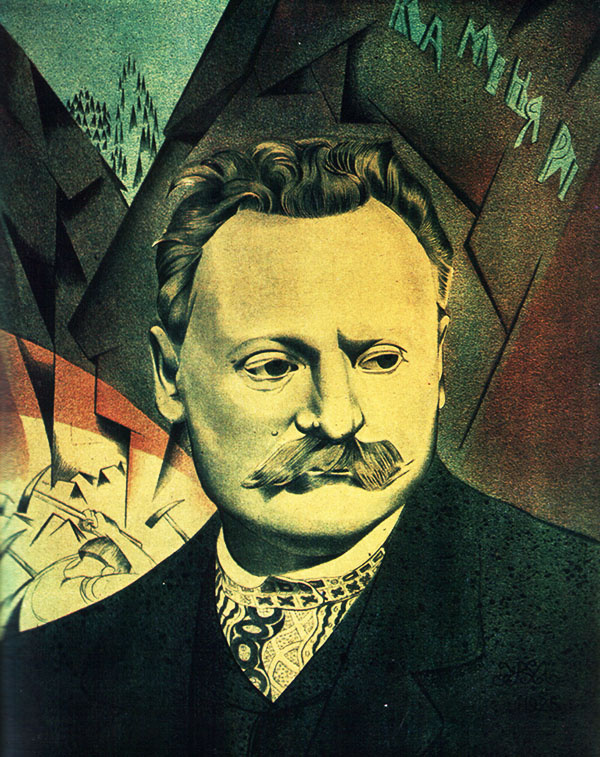
• • •
Missing some Tweet in this thread? You can try to
force a refresh







